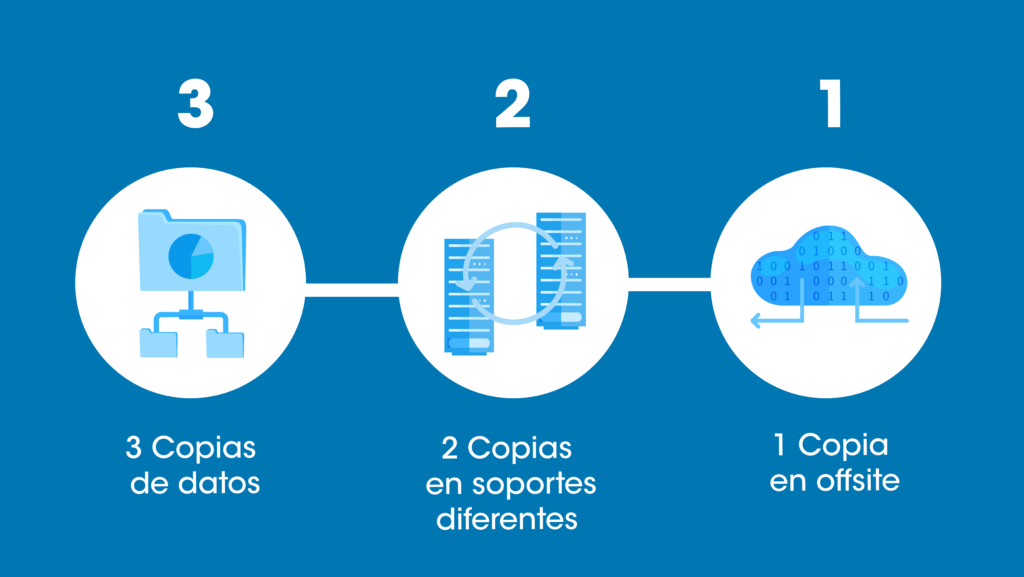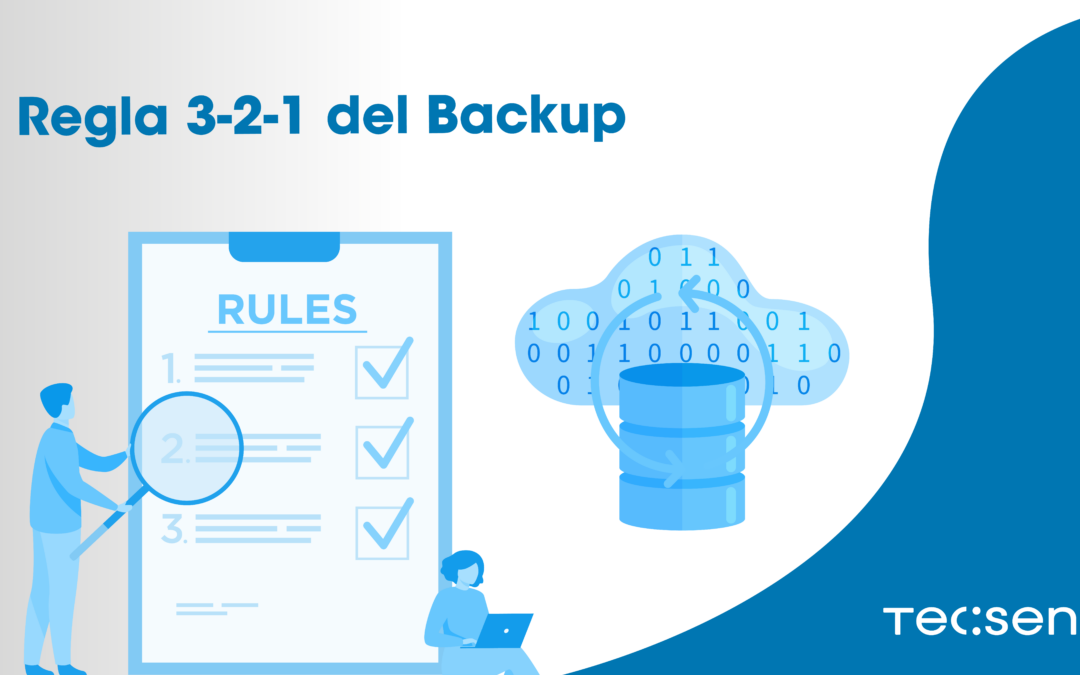When we talk about enterprise data backup and security, the 3-2-1 backup rule is a best practice. But what is it really? And what does it mean for companies?
What is the 3-2-1 Backup rule?
Backup rule 3-2-1 is a data backup and security strategy in which three copies are made to different locations. Thus guaranteeing the easy recovery of these and avoiding irreversible losses.

What is the 3-2-1 Backup rule?
This rule consists of applying the three basic principles contained in your name in the same order:
3. Perform three backups of sensitive data, this means 2 copies plus the original file,the more copies the likelihood of loss is reduced.
2. Save the backups on different media, at least use two different media to save the copies, since having it in the same place can be a risk in case of failure. For example, on a backup server and a hard disk.
1. Save an offsite backup, the physical separation of the data is an indispensable principle to correctly complete the rule. This consists of performing the backup outside the company’s premises, in most cases in the Cloud, a highly secure method. In addition to its scalability and flexibility, as it allows access from anywhere and at any time.
Example:
In order to better understand what this rule consists of, let’s take a concrete example.
A company operates with invoicing documents, accounting, contracts, payroll and other data that are crucial for its business continuity. Make regular (daily) backup copies of all relevant information.
In order to implement the rule correctly, a Network Attached Storage (NAS) is installed, where the backups are stored on a daily basis, which in turn are located in different directories on the NAS.
In addition, to complete the rule, this company would have a cloud provider to store an offsite backup.
This would comply perfectly with the 3-2-1 backup rule, with three backup copies of your data, two of them on different media (the NAS) and a third in the cloud (offsite), thus guaranteeing recovery and easy access to your data in the event of a possible disaster.
This policy reduces the impact and the possibility of total loss of the most fundamental part of a company’s business, its data.
“There are two types of people: those who have already lost their data and those who are going to lose it.
Peter Krogh”
At tecsens our backup services help you to comply with it. Need help?




